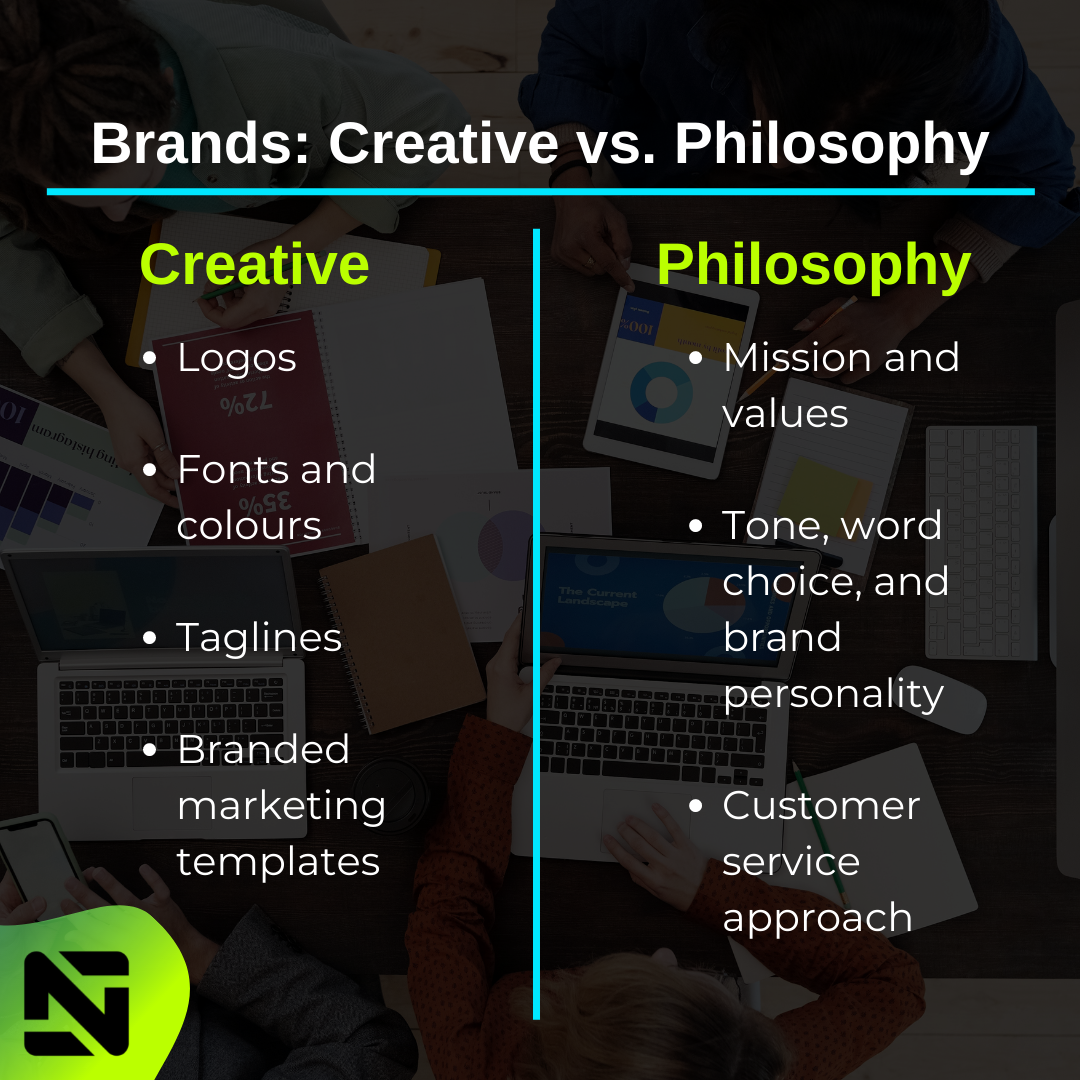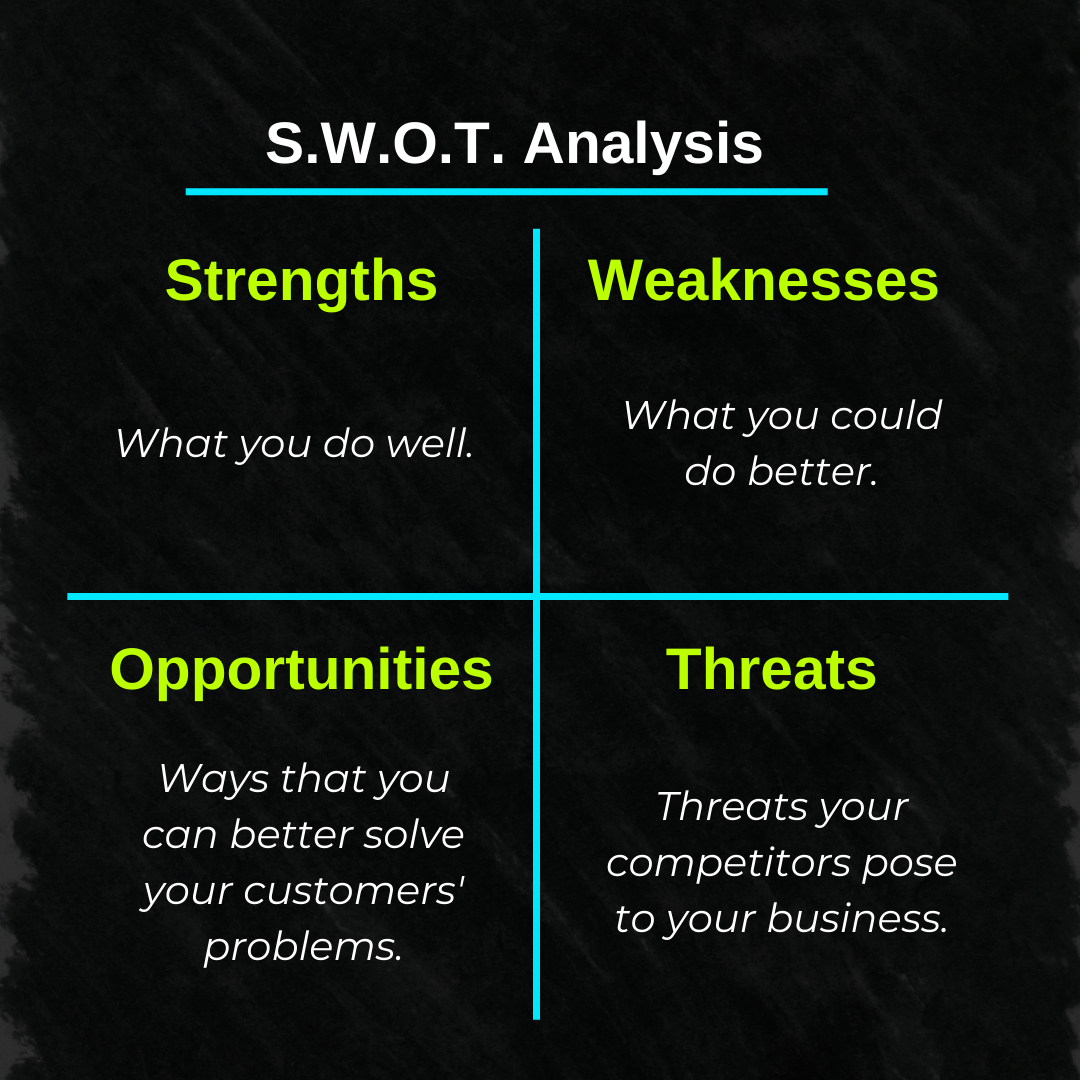Your branding plays a significant role in your success. From the visuals associated with your brand to its market position, your brand is a complex ecosystem of its own. Missteps can negatively impact your growth.
Let's get started on the essentials of building a better brand for your business.
What is Branding?
When we talk about branding, we're referring to all of the elements involved in how you present your company to the world. This includes your logo, icons, colour schemes, social and email templates, and associated imagery, along with the tone, voice, and word choice that's found across all of your messaging — including how you interact with customers, prospects, and other brands.
Branding contains multiple components and each one has a major impact on overall perception. Neglecting one area could jeopardize the hard work you put into the other areas.
Why Branding Matters
Your organization's branding is both a public and internal representation of what you do, how you do it, and what values guide your practices. Established and repeatable practices ensure your messages are consistent and align with your mission.
Like renowned brand designer Walter Landor said, "Products are made in the factory, but brands are created in the mind."

Consistent messaging will stick with your target audience and helps to foster loyalty and a sense of connection. Investing in strong branding will convince the right customers to support your business. Delivering on your promises will keep them coming back for more.
Brands: Creative vs. Philosophy
As we mentioned earlier, there are different areas of your brand. These can be boiled down to creative and philosophical elements.
The creative elements include your logos, taglines, and branded marketing templates.
It should go without saying that your logo should align with the essence of your company, but there are still many instances of brands adopting logos that don't get the right message across or simply don't make sense.
So, your logo design should follow some best practices, such as not cluttering it, using random colours or too many colours, and being too trendy.
Taglines also need to encompass the sentiment of your mission and values into something that resonates with your desired customers.
Philosophical elements include your guiding values and mission, your messaging, and your tone and word choice for communicating those messages.

How your customer service team responds to customer complaints and concerns also impacts the philosophical side. Good customer service that's efficient, responsive, and friendly demonstrates a commitment to solving the problem you tell your customers your business will solve.
Conversely, consistently poor customer service leaves customers with negative feelings toward your business, resulting in them leaving and advising others to not use your products or services.

As you can see, the messages and delivery methods still matter in the service area. Customers want to see you live up to the bells and whistles put on when they enter your sales funnel throughout their experience as a customer.
What Does Your Brand Tell Your Customer?
Before you settle on any branding for your business, you should first consider what the branding will communicate to your customers.
If what your branding communicates isn't the same as what you actually want to communicate, it can create a confusing experience for your customers and prospects. This will ultimately hurt your brand's reputation, so you definitely want to avoid any brand message missteps.
Brand ambassadors, or influencers, can help you promote your message. These individuals are seen as more trustworthy than brands when it comes to honest reviews about how the product or service works, so any messages that come through influencers will encourage people on the fence to follow and purchase from your brand.
How to Review or Audit Your Brand
Brand audits are helpful tools for determining your shortcomings as well as new opportunities. If you aren't reaching your goals but aren't sure why not, a brand audit can help you get to the bottom of it.
There are a few different reasons why you should get your brand audited.
A brand audit is an evaluation of how your brand's position in the marketplace and the industry as a whole. This audit is meant to identify how your brand stacks up against the competition, what's working really well in meeting your goals, and what needs improving.
A great place to begin with reviewing your brand is to do a S.W.O.T. analysis of your brand and that of three or four of your direct competitors. A S.W.O.T. analysis involves evaluating strengths, weaknesses, opportunities, and threats.

Let's be honest: your first brand audit can be a daunting task that you may not feel ready to take on, even with the right resources. Fortunately, there are brand auditors out there who are branding experts and make a living off their ability to hone in on a brand, analyze the data, and come back with concrete findings with actionable steps to address them.
A brand auditor will report on what's working with your current branding and associated strategy and what needs some fine-tuning to make it more successful.
Rebranding: Is It Time to Update Your Brand?
Like most things, brands also need to demonstrate flexibility with changing trends. Companies with an outdated look and feel are a turn-off to prospects and may also impact current customers' enthusiasm for recommending your business to their friends.
Some signs your brand is due for an update are:
- Your target audience has shifted since your company's inception.
- What you offer has changed and your branding no longer aligns with what you offer.
- You're reaching the wrong audience with your current branding.
- You need to repair your image following negative press.
If you see these signs, it's likely time to seriously consider how you'll rebrand. A marketing consultant can also help you determine if a rebrand is in your company's best interest.
Conclusion
To summarize:
- Brands contain two essential categories: creative and philosophy.
- Consistent branding builds trust, and brand guides ensure consistency.
- Periodic reviews allow you to continually strengthen your brand.
- Rebrands help you stand out against the competition as your business grows.



